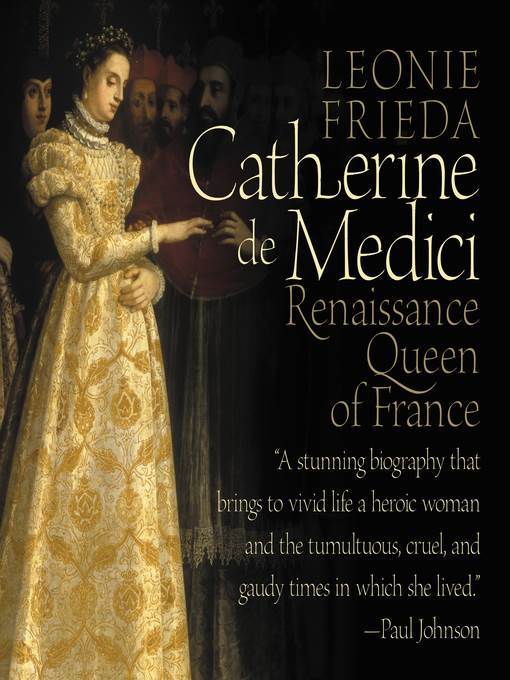
Catherine de Medici
Renaissance Queen of France
- اطلاعات
- نقد و بررسی
- دیدگاه کاربران
نقد و بررسی

December 13, 2004
In 1533, 14-year-old Catherine de Medici arrived in France to marry the future king Henri II; over the next 16 years, she endured the dominance of Henri's mistress, Diane de Poitiers, and the disdain of courtiers for her family's merchant background. The sudden death of Henri launched Catherine into three decades as regent and chief adviser to three sons who ruled in succession. Frieda navigates the twists and turns of the French royal court and family with particular attention to the formation of Catherine's political skills. From her lonely childhood as a tool in the diplomacy of her powerful uncles to her carefully cultivated relationship with her father-in-law and maneuvering through shifting family alliances, the queen learned self-possession, deception and strategy. While Catherine has been maligned for her role in France's wars of religion and in particular the St. Bartholomew's Day Massacre, Frieda argues that Catherine attempted to reach compromise in the religious strife of her adopted country. While trying to flesh out Catherine, Frieda occasionally paints others with a too-broad brush. At times, her descriptions of Catherine's actions as emotionally or politically motivated seem arbitrary. But Frieda's portrait of Catherine is multifaceted, and her presentation of the complicated narrative of five tumultuous reigns is compelling.

December 15, 2004
The sixteenth century was an exceptionally dramatic period in European history. A series of colorful kings and queens performed as power players, rendering those decades not only a bloody battleground but also an exciting pageant of dynastic intrigue. One of the most (in)famous royal players of the time was Queen Catherine de Medici of France, the Italian-born consort of the exciting and effective Henry II and the power behind the throne for her three weak king sons. The author of this revealing biography achieves remarkable balance as she freshly interprets Catherine, whose hands have usually seemed to historians to be forever stained by the religious wars that sent France into frenzies during her watch. Frieda, resisting the easy picture of Catherine--one of despicable complicity in those horrors--puts Catherine's involvement in the episodes into context; what emerges is a woman of "intelligence, courage and indefatigable spirit who did her best for her beloved if adopted country." Not a whitewash but a carefully nuanced portrait.(Reprinted with permission of Booklist, copyright 2004, American Library Association.)




دیدگاه کاربران